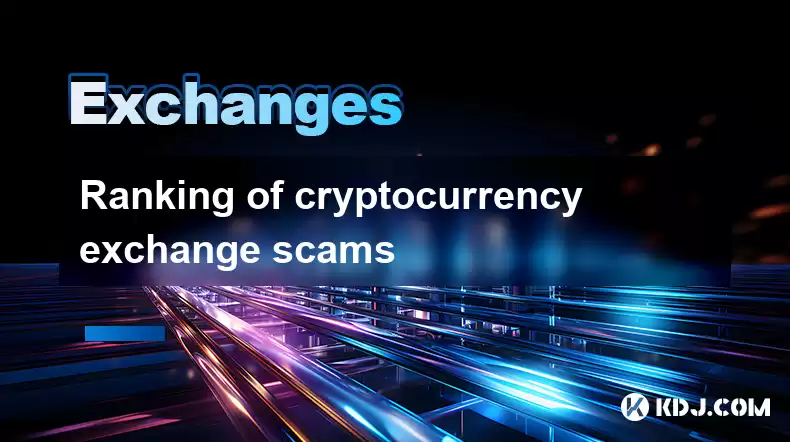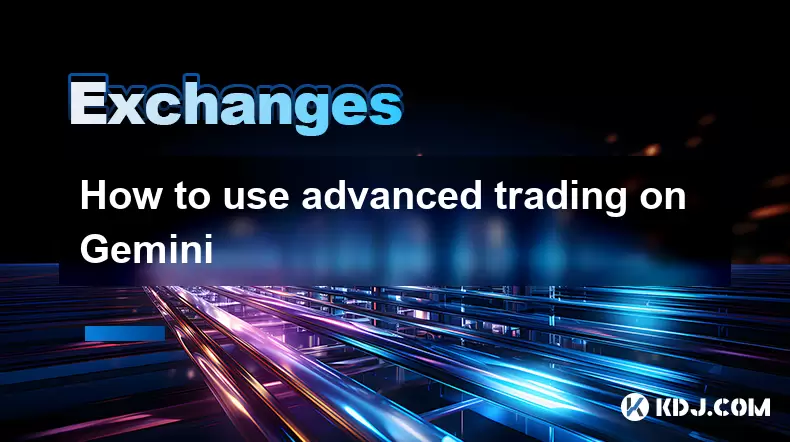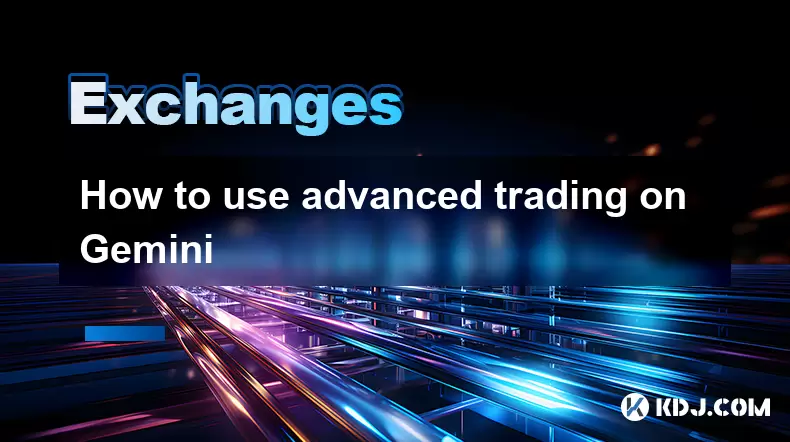-
 Bitcoin
Bitcoin $116800
0.20% -
 Ethereum
Ethereum $4192
5.51% -
 XRP
XRP $3.287
0.12% -
 Tether USDt
Tether USDt $1.000
0.00% -
 BNB
BNB $808.7
2.39% -
 Solana
Solana $180.4
2.23% -
 USDC
USDC $0.9999
0.01% -
 Dogecoin
Dogecoin $0.2390
6.80% -
 TRON
TRON $0.3365
-0.71% -
 Cardano
Cardano $0.8081
2.20% -
 Hyperliquid
Hyperliquid $43.74
6.50% -
 Chainlink
Chainlink $21.27
9.03% -
 Stellar
Stellar $0.4530
0.07% -
 Sui
Sui $3.908
3.00% -
 Bitcoin Cash
Bitcoin Cash $575.0
-1.02% -
 Hedera
Hedera $0.2632
0.61% -
 Avalanche
Avalanche $24.17
3.25% -
 Ethena USDe
Ethena USDe $1.001
0.02% -
 Litecoin
Litecoin $122.1
-0.24% -
 Toncoin
Toncoin $3.376
0.35% -
 UNUS SED LEO
UNUS SED LEO $8.981
-0.15% -
 Shiba Inu
Shiba Inu $0.00001373
5.86% -
 Uniswap
Uniswap $10.85
2.17% -
 Polkadot
Polkadot $4.080
4.03% -
 Dai
Dai $1.000
-0.02% -
 Pepe
Pepe $0.00001228
8.92% -
 Bitget Token
Bitget Token $4.506
0.09% -
 Cronos
Cronos $0.1581
3.76% -
 Monero
Monero $270.1
0.81% -
 Ethena
Ethena $0.7293
15.86%
Ranking of cryptocurrency exchange scams
Beware of cryptocurrency exchange scams that promise unrealistically high returns, lack transparency, and use aggressive marketing tactics.
Jan 14, 2025 at 10:44 am

Key Points
- Definition and types of cryptocurrency exchange scams
- Common red flags to watch out for
- How to avoid falling victim to cryptocurrency exchange scams
- What to do if you've been scammed
- List of notable cryptocurrency exchange scams
Introduction
Cryptocurrency exchange scams are a growing problem in the digital asset space. These scams can take many forms, from fake exchanges to phishing attacks to Ponzi schemes. In this article, we will explore the different types of cryptocurrency exchange scams, provide tips on how to avoid falling victim to them, and discuss what to do if you've been scammed. Additionally, we will provide a ranking of notable cryptocurrency exchange scams.
Types of Cryptocurrency Exchange Scams
- Fake Exchanges: These are websites that impersonate legitimate cryptocurrency exchanges. They may use similar domain names, logos, and other branding elements to trick victims into thinking they are dealing with a real exchange. Once victims deposit their funds into these fake exchanges, they are stolen.
- Phishing Attacks: These are emails or websites that are designed to trick victims into revealing their private keys or other sensitive information. Phishing attacks often use social engineering techniques to pressure victims into taking action, such as clicking on a link or downloading a file.
- Ponzi Schemes: These are investment scams that promise high returns with little or no risk. Ponzi schemes work by paying early investors with money from new investors. When the flow of new investors slows down, the scheme collapses and investors lose their money.
- Pump-and-Dump Schemes: These are scams in which promoters artificially inflate the price of a cryptocurrency through coordinated buying and selling. Once the price reaches a certain level, the promoters sell their coins and leave other investors holding the bag.
- Exit Scams: These are scams in which the operators of a cryptocurrency exchange simply disappear with their customers' funds. Exit scams are often preceded by a period of increased activity and hype around the exchange.
Common Red Flags to Watch Out For
- Unlicensed Exchanges: Cryptocurrency exchanges that are not licensed by a reputable regulatory authority are more likely to be scams.
- Unusually High Returns: If an exchange is promising unusually high returns, it is likely a scam.
- Aggressive Marketing Tactics: Scammers often use aggressive marketing tactics to pressure victims into taking action.
- Lack of Transparency: Scammers often avoid providing basic information about their exchange, such as their legal structure, team, and location.
- Negative Reviews: If you see a lot of negative reviews about an exchange, it is likely a scam.
How to Avoid Falling Victim to Cryptocurrency Exchange Scams
- Only Use Reputable Exchanges: Before depositing any funds into an exchange, make sure it is a reputable and licensed exchange.
- Be Wary of Phishing Attacks: Never click on links or download files from emails or websites that you do not trust.
- Protect Your Private Keys: Keep your private keys safe and never share them with anyone.
- Do Your Research: Before investing in any cryptocurrency, do your research and make sure you understand the risks involved.
- Use a Hardware Wallet: A hardware wallet is a physical device that stores your private keys offline. This makes it much more difficult for scammers to steal your funds.
What to Do If You've Been Scammed
- Report the Scam: Report the scam to the relevant authorities, such as the SEC or the FBI.
- Contact Your Bank: If you have deposited funds into a fake exchange, contact your bank and let them know.
- File a Lawsuit: You may be able to file a lawsuit against the scammers.
- Learn from Your Experience: Take some time to reflect on what happened and what you could have done differently.
Ranking of Notable Cryptocurrency Exchange Scams
- Mt. Gox: Mt. Gox was one of the largest cryptocurrency exchanges in the world before it was hacked in 2014. The hack resulted in the theft of over 850,000 bitcoins, worth over $450 million at the time.
- Binance Hack: In 2019, Binance, the largest cryptocurrency exchange in the world, was hacked. The hackers stole over $40 million worth of Bitcoin.
- Bitfinex Hack: In 2016, Bitfinex, one of the largest cryptocurrency exchanges in the world, was hacked. The hackers stole over $70 million worth of Bitcoin.
- Cryptopia Hack: In 2019, Cryptopia, a New Zealand-based cryptocurrency exchange, was hacked. The hackers stole over $16 million worth of cryptocurrency.
- QuadrigaCX Exit Scam: In 2019, QuadrigaCX, a Canadian cryptocurrency exchange, collapsed in an exit scam. The company's founder, Gerald Cotten, died suddenly in 2018, and his wife was unable to access the company's cold wallets. This resulted in the loss of over $190 million worth of cryptocurrency.
FAQs
Q: What are the most common types of cryptocurrency exchange scams?
A: The most common types of cryptocurrency exchange scams are fake exchanges, phishing attacks, Ponzi schemes, pump-and-dump schemes, and exit scams.
Q: How can I protect myself from cryptocurrency exchange scams?
A: You can protect yourself from cryptocurrency exchange scams by only using reputable exchanges, being wary of phishing attacks, protecting your private keys, doing your research, and using a hardware wallet.
Q: What should I do if I've been scammed by a cryptocurrency exchange?
A: If you've been scammed by a cryptocurrency exchange, you should report the scam to the relevant authorities, contact your bank, file a lawsuit, and learn from your experience.
Disclaimer:info@kdj.com
The information provided is not trading advice. kdj.com does not assume any responsibility for any investments made based on the information provided in this article. Cryptocurrencies are highly volatile and it is highly recommended that you invest with caution after thorough research!
If you believe that the content used on this website infringes your copyright, please contact us immediately (info@kdj.com) and we will delete it promptly.
- Crypto Airdrops & Opportunities: What's Hot in August 2025
- 2025-08-09 22:30:12
- XRP, Cardano, and the Alluring Alternatives: A 2025 Crypto Landscape
- 2025-08-09 22:35:12
- Shiba Inu (SHIB) in the Crypto Landscape: Community, Trends, and Future Outlook
- 2025-08-09 20:30:12
- Solana, Unilabs, and Social Trends: Decoding the Crypto Buzz
- 2025-08-09 21:10:12
- Dogecoin, Meme Coins, and Layer Brett: Chasing the Next 100x
- 2025-08-09 20:50:12
- Crypto Presales in 2025: Are They Set to Outperform Launches?
- 2025-08-09 20:55:15
Related knowledge

How to use margin trading on Poloniex
Aug 08,2025 at 09:50am
Understanding Margin Trading on Poloniex

How to use advanced trading on Gemini
Aug 08,2025 at 04:07am
Understanding Advanced Trading on GeminiAdvanced trading on Gemini refers to a suite of tools and order types designed for experienced traders who wan...

How to use advanced trading on Gemini
Aug 08,2025 at 10:56pm
Understanding Advanced Trading on GeminiAdvanced trading on Gemini refers to the suite of tools and order types available on the Gemini ActiveTrader p...

How to get my API keys from KuCoin
Aug 08,2025 at 06:50pm
Understanding API Keys on KuCoinAPI keys are essential tools for users who want to interact with KuCoin's trading platform programmatically. These key...

How to trade options on Deribit
Aug 09,2025 at 01:42am
Understanding Deribit and Its Options MarketDeribit is a leading cryptocurrency derivatives exchange that specializes in Bitcoin (BTC) and Ethereum (E...

How to deposit USD on Bitstamp
Aug 07,2025 at 05:18pm
Understanding Bitstamp and USD DepositsBitstamp is one of the longest-standing cryptocurrency exchanges in the industry, offering users the ability to...

How to use margin trading on Poloniex
Aug 08,2025 at 09:50am
Understanding Margin Trading on Poloniex

How to use advanced trading on Gemini
Aug 08,2025 at 04:07am
Understanding Advanced Trading on GeminiAdvanced trading on Gemini refers to a suite of tools and order types designed for experienced traders who wan...

How to use advanced trading on Gemini
Aug 08,2025 at 10:56pm
Understanding Advanced Trading on GeminiAdvanced trading on Gemini refers to the suite of tools and order types available on the Gemini ActiveTrader p...

How to get my API keys from KuCoin
Aug 08,2025 at 06:50pm
Understanding API Keys on KuCoinAPI keys are essential tools for users who want to interact with KuCoin's trading platform programmatically. These key...

How to trade options on Deribit
Aug 09,2025 at 01:42am
Understanding Deribit and Its Options MarketDeribit is a leading cryptocurrency derivatives exchange that specializes in Bitcoin (BTC) and Ethereum (E...

How to deposit USD on Bitstamp
Aug 07,2025 at 05:18pm
Understanding Bitstamp and USD DepositsBitstamp is one of the longest-standing cryptocurrency exchanges in the industry, offering users the ability to...
See all articles

























































































